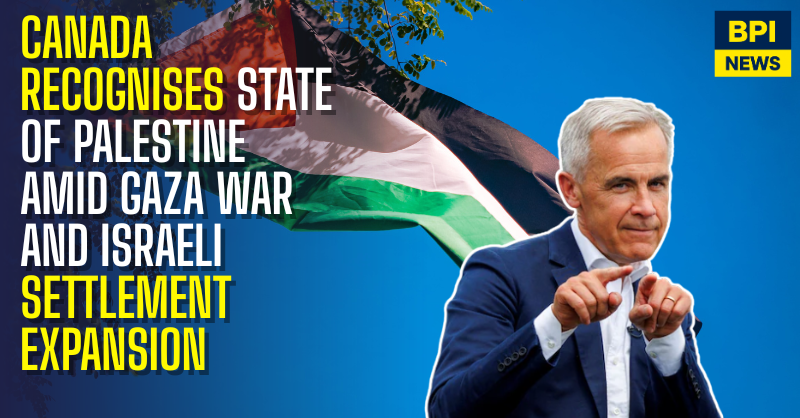Canada has formally recognised the State of Palestine, marking a significant departure from its previous policy that recognition would only follow a negotiated peace agreement between Israel and the Palestinians.
Prime Minister Mark Carney announced the shift in Ottawa on Sunday, citing the erosion of the two-state solution due to Israeli policies and the worsening humanitarian situation in Gaza.
“The current Israeli government is working methodically to prevent the prospect of a Palestinian state from ever being established,” Mr Carney said. “Its sustained assault in Gaza has killed tens of thousands of civilians, displaced well over one million people, and caused a devastating and preventable famine in violation of international law.”
Carney added that Israel’s settlement expansion in the West Bank and East Jerusalem, combined with Hamas terrorism, had further undermined the possibility of peace. He stressed that Canada’s recognition is “not a reward for terrorism” but instead a step to empower the Palestinian Authority to pursue peaceful coexistence and governance reforms.
The declaration confirmed that Canada’s recognition is conditional on commitments from the Palestinian Authority, including democratic reforms, general elections in 2026 excluding Hamas, and the demilitarisation of a future Palestinian state.
Foreign Affairs Minister Anita Anand stated that while Canada recognises Palestine, full diplomatic normalisation will only occur once commitments are delivered, including the release of Israeli hostages and the exclusion of Hamas from governance.
Canada’s move comes in parallel with similar announcements by Britain and France, with Australia and Belgium expected to follow during the United Nations General Assembly in New York. These countries join over 75 per cent of UN member states that have recognised Palestine over the past three decades.
The timing also precedes a France-Saudi Arabia-led conference on a two-state solution, intended to revive peace talks on the basis of mutual recognition and security guarantees.
The United States, however, continues to oppose unilateral recognition of Palestine. Last month, Washington revoked a visa for Palestinian President Mahmoud Abbas, preventing him from attending the conference in person. Twenty-five Republican members of Congress also issued a letter warning Canada and other Western nations of possible reprisals if they recognised Palestine, arguing it undermines Israel’s right to exist.
Despite opposition, Carney emphasised that Canada’s position reflects its long-standing principles of self-determination and human rights under the UN Charter, as well as decades of support for a two-state solution.


